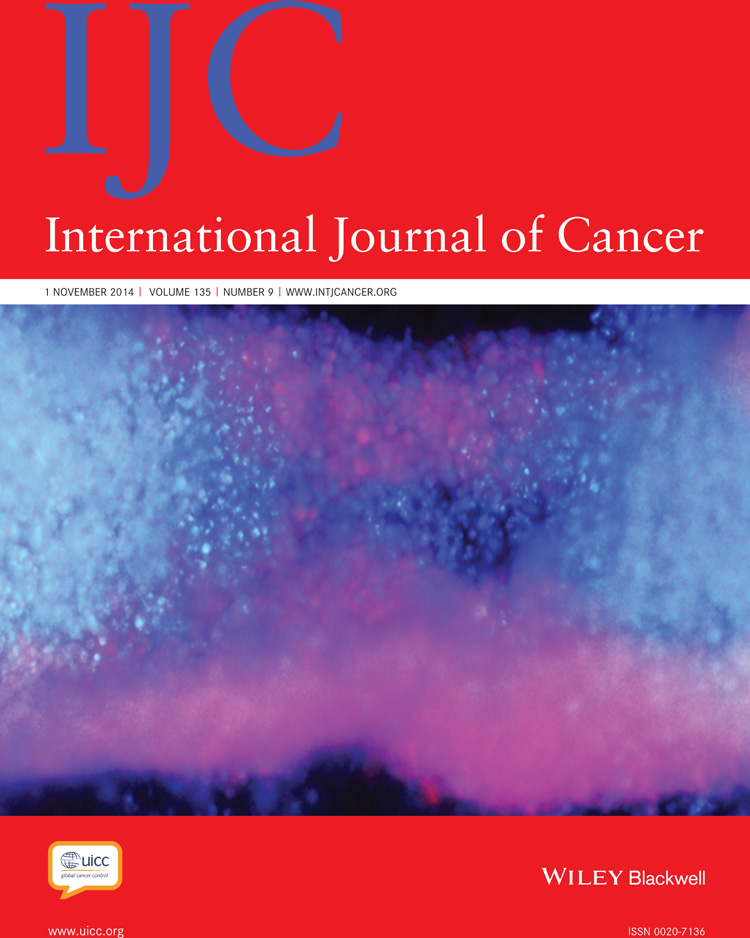In vivo evidence that secretion of HLA-G by immunogenic tumor cells allows their evasion from immunosurveillance
Abstract
Human leukocyte antigen-G (HLA-G) expression by tumors has been evidenced in numerous malignancies in association with poor prognosis and resistance to immunotherapy in humans. Particularly, soluble form of HLA-G was measured at high concentrations in malignant effusions and plasma from cancer patients, and inhibits antitumor immune cells in vitro through interaction with immunoglobulin-like transcript (ILT) receptors. Nevertheless, in vivo study demonstrating that HLA-G secretion by tumor cells allows their escape from immunosurveillance remained to be established. Despite nondescribed murine homolog, direct functional interaction of HLA-G with murine paired immunoglobulin-like receptor (PIR)-B, ortholog of human ILT receptors, enables to investigate its role in vivo. Immunocompetent mice were injected either with syngeneic tumor cells co-expressing HLA-G5, the main soluble HLA-G isoform, and the conformation stabilizer human β2-microglubulin (hβ2m), or with hβ2m+HLA-G5− tumor cells. hβ2m expressed at both tumor cell surface acted as a tumor antigen triggering a specific humoral response. Interestingly, although hβ2m+HLA-G5− tumors were rejected, secreted HLA-G5 provided hβ2m+HLA-G5+ tumors a protection against hβ2m-elicited immune rejection, enabling such immunogenic tumors to grow similarly to a poorly immunogenic tumor. HLA-G5 tumor expression was associated with local and peripheral immunosuppression, characterized by dampened anti-hβ2m B-cell response, quantitative and functional T-and B-cell defects, accumulation of myeloid-derived suppressor cells able to inhibit T-cell proliferation and reduced T- and B-cell tumor infiltrate. Our study provides the first in vivo proof that soluble HLA-G counteracts tumor rejection and reinforces the importance to consider HLA-G as a promising target to optimize current cancer immunotherapies.
Abstract
What's New?
Tumors that express human leukocyte antigen-G (HLA-G) are associated with poor prognosis and resistance to immunotherapy in humans. Researchers have proposed that HLA-G secretion allows tumors to escape immunosurveillance, but direct evidence has been lacking. In this study, the authors found that when tumors are engineered to express HLA-G, they do indeed escape destruction by the immune system, via a number of different effects on T and B cells, and MDSC. Blocking HLA-G may therefore be a promising therapeutic strategy to enhance immunotherapy.




